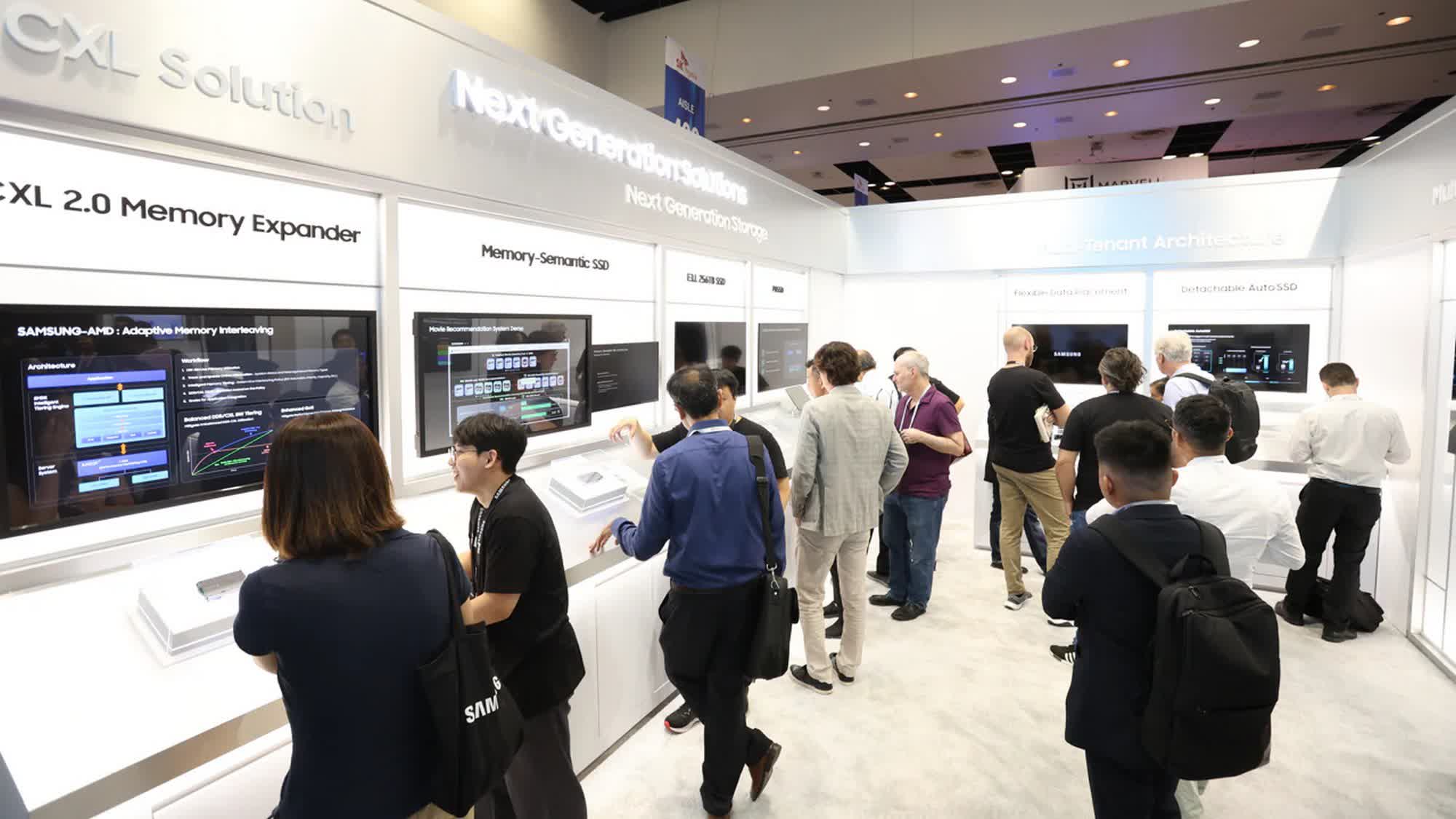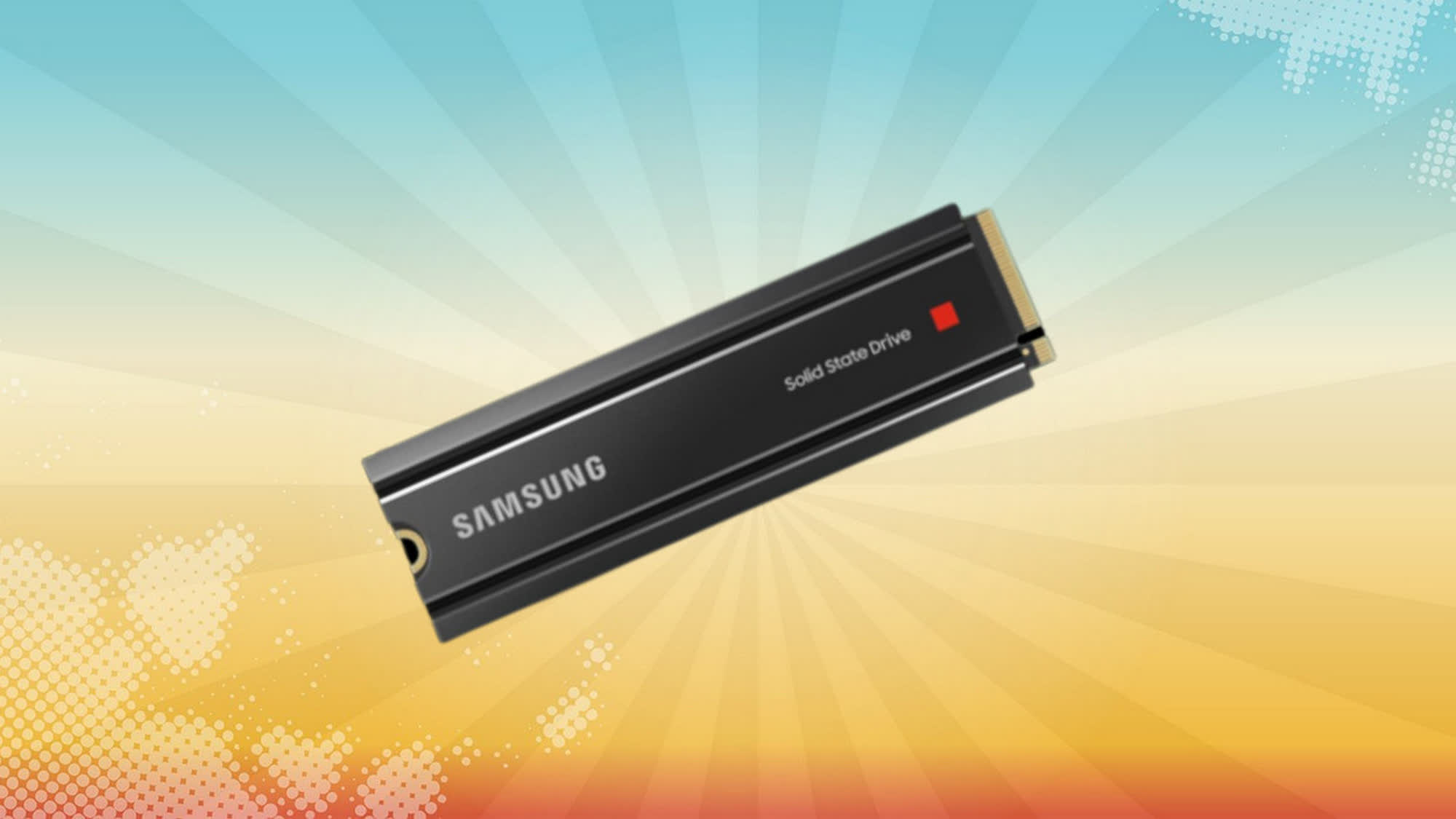What just happened? At the Flash Memory Summit (FMS) 2023, Samsung's semiconductor division announced that it has created a 256TB SSD that the company claims consumes up to seven times less power than a stack of eight 32TB SSDs connected together. The SSD is QLC-based and according to Samsung, comes with an "unprecedented level of integration density." The new drives will be aimed at hyper-scale data centers and enterprises.
In addition to announcing the 256TB drives, Samsung also unveiled the PBSSD architecture, a petabyte-scale ultra-high capacity solution that it claims "provides scalability through capacity variation depending on the application." Along with its partner Meta, Samsung also demonstrated a technology called Flexible Data Placement (FDP), which has been ratified in NVMe and is a way of optimizing data placement to improve predictability and overall performance, while minimizing TCO. The company also highlighted that the software used in the FDP demo was entirely open source.
Samsung also showcased other storage solutions at the event, including the PM1743 server SSD that was originally announced at FMS 2022. Samsung claims it is the first server SSD to use a PCIe 5.0 interface, and is claimed to be twice as power efficient as its predecessor. It comes in capacities of up to 15.36TB, and is expected to be available later this year for use in the field of generative AI, such as with ChatGPT.

Additionally, Samsung announced that it has completed development of the PM9D3a high-capacity 7.68/15.36TB 2.5-inch server SSD. These drives also use the PCIe 5.0 standard, have an 8-inch controller, and are reportedly up to 2.3 times faster than their immediate predecessor. They will be available from the first half of next year in a variety of form factors and lineups in accordance with customer demand. At the lower end, these will have capacities below 3.84TB, and will top out at 30.72TB at the higher end.
High-capacity SSDs have become the norm in recent years, with many companies announcing new drives that offer increased capacities for both enterprises and retail users. Earlier this year, Micron launched 30TB SSDs for data centers with 10x more 4KB random write endurance for improved longevity.
While most of these new high-capacity drives are meant for businesses, some of them will hopefully be available for consumers sooner rather than later, as storage requirements continue to rise for users everywhere. SSD prices are also coming down to more affordable levels in recent years, so there's no good reason for at least a few high-capacity drives not to make it to the retail market at some stage going forward.
